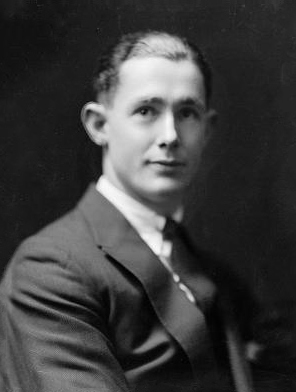Arthur Porritt, Baron Porritt
Arthur Porritt, Baron Porritt, Bt, GCMG, GCVO, CBE, FRCS (10 August 1900 – 1 January 1994) was a prominent New Zealand physician, military surgeon, and athlete, who later served as the 11th Governor-General of New Zealand from 1967 to 1972. He was the first New Zealander to hold the office, marking a significant moment in the country's history. His contributions to medicine, sports, and public service have left a lasting legacy, making him a notable figure in New Zealand's history.
Early Life and Education[edit | edit source]
Arthur Porritt was born in Wanganui, New Zealand, the son of a physician. He received his early education at Wanganui Collegiate School before moving to England to study medicine. He attended Magdalen College, Oxford, where he excelled not only in his studies but also in athletics. Porritt was a talented runner, representing New Zealand at the 1924 Summer Olympics in Paris, where he won a bronze medal in the 100 meters event. This achievement made him one of New Zealand's early Olympic heroes.
Medical Career[edit | edit source]
After completing his studies at Oxford, Porritt pursued a career in surgery. He became a Fellow of the Royal College of Surgeons (FRCS) and worked in various hospitals in London. His medical career was distinguished by his contributions to military surgery during World War II, where he served with distinction in the Royal Army Medical Corps. After the war, he continued to make significant contributions to the field of surgery and was eventually appointed as Surgeon to the Queen, Elizabeth II, a position he held for many years.
Governor-General of New Zealand[edit | edit source]
In 1967, Arthur Porritt was appointed as the Governor-General of New Zealand, a role he held until 1972. His tenure was marked by his efforts to bridge the gap between the monarchy and the people of New Zealand, fostering a sense of national identity and unity. He was known for his approachability and his commitment to public service, traveling extensively throughout the country to meet with New Zealanders from all walks of life.
Later Life and Legacy[edit | edit source]
After retiring from his role as Governor-General, Porritt returned to England, where he continued to be involved in various public and medical organizations. He was elevated to the peerage as Baron Porritt of Wanganui and Hampstead in 1973, becoming a life peer and taking his place in the House of Lords. He remained active in public life until his death in 1994.
Arthur Porritt's legacy is multifaceted, reflecting his contributions to sports, medicine, and public service. He is remembered as a pioneering figure in New Zealand's history, a man who excelled in every field he entered and who served his country with distinction.
This article is a New Zealand biography stub. You can help WikiMD by expanding it!
Search WikiMD
Ad.Tired of being Overweight? Try W8MD's physician weight loss program.
Semaglutide (Ozempic / Wegovy and Tirzepatide (Mounjaro / Zepbound) available.
Advertise on WikiMD
|
WikiMD's Wellness Encyclopedia |
| Let Food Be Thy Medicine Medicine Thy Food - Hippocrates |
Translate this page: - East Asian
中文,
日本,
한국어,
South Asian
हिन्दी,
தமிழ்,
తెలుగు,
Urdu,
ಕನ್ನಡ,
Southeast Asian
Indonesian,
Vietnamese,
Thai,
မြန်မာဘာသာ,
বাংলা
European
español,
Deutsch,
français,
Greek,
português do Brasil,
polski,
română,
русский,
Nederlands,
norsk,
svenska,
suomi,
Italian
Middle Eastern & African
عربى,
Turkish,
Persian,
Hebrew,
Afrikaans,
isiZulu,
Kiswahili,
Other
Bulgarian,
Hungarian,
Czech,
Swedish,
മലയാളം,
मराठी,
ਪੰਜਾਬੀ,
ગુજરાતી,
Portuguese,
Ukrainian
Medical Disclaimer: WikiMD is not a substitute for professional medical advice. The information on WikiMD is provided as an information resource only, may be incorrect, outdated or misleading, and is not to be used or relied on for any diagnostic or treatment purposes. Please consult your health care provider before making any healthcare decisions or for guidance about a specific medical condition. WikiMD expressly disclaims responsibility, and shall have no liability, for any damages, loss, injury, or liability whatsoever suffered as a result of your reliance on the information contained in this site. By visiting this site you agree to the foregoing terms and conditions, which may from time to time be changed or supplemented by WikiMD. If you do not agree to the foregoing terms and conditions, you should not enter or use this site. See full disclaimer.
Credits:Most images are courtesy of Wikimedia commons, and templates, categories Wikipedia, licensed under CC BY SA or similar.
Contributors: Prab R. Tumpati, MD


